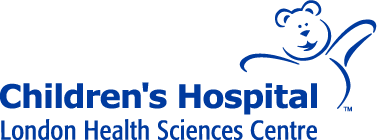Your First Appointment
To ensure your appointment goes smoothly, try to make advance preparations. Here are things you want to remember:
- Bring your child's health card.
- If your child is to have tests, make sure you understand the instructions and follow them carefully.
- Make written notes of questions you want to ask before your visit.
- Bring all of your child's medications (in the bottles) and the dose schedule to the appointment.
- Be prepared to give the health care professional your pharmacy's phone number.
- Bring to the attention of the health care professional any problems that have occurred related to your child’s neurological condition, even if you feel they are trivial. Any change in your child's status might be relevant.
- If your child has seizures, be prepared to discuss them in detail. Include information such as duration, type, severity, frequency, triggers, etc.
- Focus on one neurological concern at a time. Doing this helps you and the health practitioner to discuss your child's issues in a more concise, complete way.
Questions your health care professional might ask you
- When did your child's symptoms start?
- How have your child's symptoms changed?
- What other illnesses/conditions has your child had?
- What are your main concerns today?
- Has your child had any previous diagnostic tests, e.g., EEG, MRI, CT scan, blood work? Please bring results and/or scans, if possible.
- Please describe your child's developmental progress.
- What is your family health history?
- What is your child's immunization status?
Questions your health care professional might ask if you child has seizures
- What was your child doing at the time of the seizure?
- What was the exact time of day?
- What took place before the seizure?
- What called your attention to the seizure — cry out, fall, stare, head turn?
- Did your child's body become rigid or stiff?
- Were there neck jerks or twitches? Which part of the body moved first? Next?
- Did the breathing change?
- Did your child's eyelids flutter or eyes roll? To which side?
- Did your child's skin show changes? Was their skin flushed, clammy, blue?
- How long did the seizure last? Time the seizures with a watch or clock. (This is difficult to remember during a seizure, but it helps the doctor.)
- Could you make contact with your child during the seizure? Did your child respond?
- What was your child's behaviour like after the seizure — alert, drowsy, confused, fearful, any memory of what happened?
- Did your child report any unusual feelings, sensations, or perceptions that occurred before the seizure?
- If your child is taking medication, when was the last dose?
Need a Referral to a Neurologist?
- Ask a doctor you respect to recommend a neurologist. Remember, you can only be referred to a neurologist from another doctor, like your family doctor or a nurse practitioner.
- Look for a neurologist you feel you can talk to, who answers your questions and is willing to seek a second opinion.
- You can search for a doctor on the College of Physicians & Surgeons of Ontario website, but you must be referred.
How to book an initial appointment
- See your family doctor for an assessment of your child's condition.
- Have your family doctor make a referral to our office by faxing a letter regarding your child's condition.
- You will receive a call from our secretary with an appointment date and any necessary instructions. It is important that you keep your appointment time, however, if you are unable to make this appointment due to special circumstances, please call as soon as possible to arrange an alternate date.



